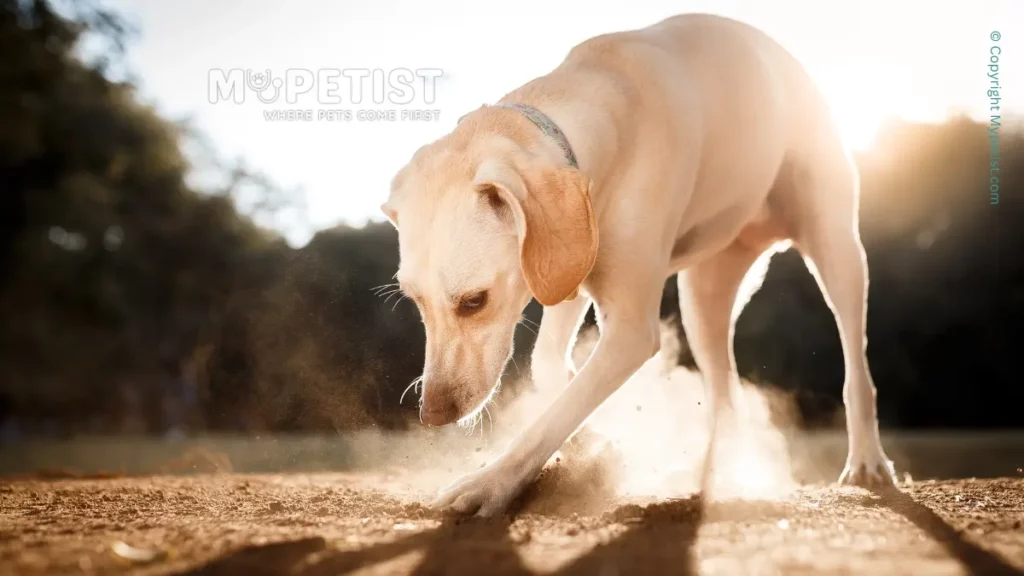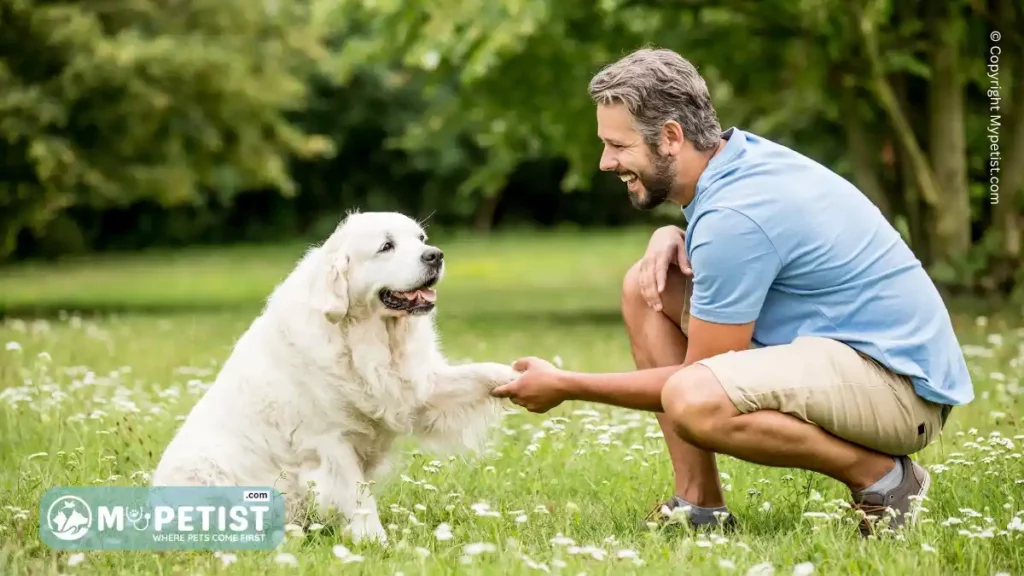How To Stop A Dog From Digging in The Yard
Ditch the Digs: Unleashing Tips to Stop Your Dog from Digging in the Yard!
Digging can be a major problem for dog owners and can cause damage to the yard. If your dog is a digger, it’s important to take steps to stop them from developing this habit. This article will provide you with helpful tips on how to stop a dog from digging in the yard. We will discuss various methods, from physical deterrents to behavioral training, that can help deter your pup from digging up your lawn.
As pet owners, we all want to keep our pets safe and happy. Unfortunately, some of these furry friends have the tendency to express their joy by digging in the yard. If your dog is a digger, and it’s causing issues in your garden, you can take certain steps to stop this behavior. Here, we provide an overview of different strategies you can use to help keep your pup from ruining your carefully manicured lawn.
Table of Contents
- Why it is important to stop a dog from digging in the yard
- Causes of Digging
- Dog Digging Prevention Strategies
- A. Provide plenty of exercise and mental stimulation
- B. Spend more time with your dog
- C. Install fencing or other barriers
- D. Cover areas with wire mesh, rocks, or other materials that are difficult to dig through
- E. Place chicken wire over affected areas and bury it a few inches deep
- F. Provide plenty of toys and activities
- G. Use repellents on affected areas; however, note that this may not be effective in all cases
- H Create a designated digging area and fill it with sand or dirt
- I . Consider using an underground fence system
- Conclusion
Why it is important to stop a dog from digging in the yard
Digging is a common problem for dog owners. It can cause damage to yards, gardens, and flower beds. Not only that, but it can also be dangerous for the dog as they can potentially hurt themselves or get stuck in the hole. Additionally, if your dog digs up something hazardous or poisonous, it could become very sick or even die.
It is therefore important to take steps in order to prevent this type of behavior from happening in the first place. There are various techniques that you can use to discourage digging in the yard, such as providing regular exercise and attention, creating physical barriers like fencing, and using deterrents like bitter apple spray. With patience and proper training, you should be able to successfully stop your dog from digging up your yard.
Causes of Digging
1. Boredom as a Cause of dog Digging

Boredom is often cited as one of the main causes of dog digging. Digging can be a way for dogs to pass their time and alleviate boredom. Dogs may also dig in order to hide items such as bones or toys that they have found, or to search for food underground. Digging can also be a sign of anxiety or an attempt to escape from confinement if the dog feels separated from its family members.
Boredom can lead to destructive behaviors such as digging, which is why it’s important to provide plenty of mental stimulation and exercise for your pup throughout the day. This can include taking them on walks, playing fetch, teaching them tricks, and providing interactive toys that encourage problem-solving skills. Additionally, providing plenty of attention and affection will help keep your pup happy and content while reducing the changes of boredom-related behaviors like digging.
#2. Instinctive behavior
Instinctive behavior is a major cause of dogs digging. Dogs often have an innate urge to dig, and when left unchecked can quickly create a large mess in your yard. A dog’s digging behavior is usually motivated by either natural curiosity, boredom, or an instinct to search for food or prey. They may also be trying to hide a favorite toy or bone, or simply want to make a comfortable bed for themselves.
If your dog is constantly digging up the garden, it’s important to provide them with suitable alternatives such as playtime with you, chews and toys that are safe for them, and plenty of exercise. Additionally, keeping your pet on a leash while outdoors can help manage their natural inclination to dig and prevent unnecessary damage.
C. Seeking attention
Dogs are intelligent animals, and they can quickly learn how to get attention from their owners. One of the ways a dog may try to seek attention is by digging. Digging is a natural behavior for dogs due to their instincts, but it can quickly become problematic if not addressed promptly. Dogs may dig at furniture, carpets, or even their own beds in an attempt to gain your attention.
If your dog starts to exhibit this behavior, it’s important to understand why they are doing so and take steps to address the problem. The best way to stop your dog from digging is by providing them with plenty of exercise and mental stimulation. Taking them on walks, teaching them new tricks, or playing games with them will help keep them physically and mentally engaged while also helping you bond with your pet.
Additionally, if you catch them in the act of digging, make sure you immediately reprimand them so that they understand that this behavior is unacceptable. With patience and consistency, you can help break this habit and encourage alternative behaviors that are more suited for getting your attention without damaging items in the home.
D. Hunting for prey
Digging Hunting for prey is a common cause of dog digging. Dogs are descendants of wild animals, so they have strong natural instincts to hunt and dig. When hunting for prey, dogs use their noses to detect the scent of potential prey such as small rodents or reptiles. Once they identify a target, they will start to dig and paw furiously at the ground in order to reach it.
This can be quite destructive if done in an inappropriate environment, such as your garden or lawn. In addition to this, dogs may also dig simply out of boredom or frustration; if you find that your pet has been excessively digging in your yard, it is important to provide them with plenty of mental stimulation and exercise in order to keep them occupied.
E. Separation anxiety
Digging Separation anxiety is a common cause of dog digging. When dogs are left alone for long periods of time, they can become anxious and stressed. This can manifest in the form of excessive digging. Other signs of separation anxiety in dogs include pacing, whining, barking, howling, chewing on objects, elimination indoors and other destructive behaviors.
In order to help your dog with his separation anxiety, you should start by providing him with plenty of exercise and mental stimulation during the day so he is better able to cope with being alone. You may also need to increase the amount of time you spend with him when you are home so that he feels more secure when you’re away. Finally, providing him with safe chew toys or puzzles can help him stay occupied while you’re gone and can help distract him from his anxiety.
F. Temperature regulation
Temperature regulation is one of the main causes of a dog digging. Dogs will use their paw to dig and create a shallow hole in order to seek out cool spots during hot weather. This helps them to regulate their body temperature and keep them comfortable during the summer months. Furthermore, if they do not have access to shade or air-conditioning, they may also dig deeper holes in order to stay cool.
Additionally, when temperatures drop significantly during winter, dogs may dig deeper holes to help insulate themselves from the cold ground temperatures and provide some warmth by burrowing beneath the surface. Therefore, temperature regulation is an important consideration when it comes to understanding why your dog may be digging.
G. Searching for food or treats
Searching for food or treats is one of the main causes of dog digging. Dogs are natural scavengers, and if they think they can find something tasty in the ground, they’ll dig away until they do. Digging is a natural behavior for many breeds, so it can be difficult to stop them from doing it.
If your dog has access to a yard, providing him with ample exercise and play may reduce his urge to dig in search of a snack. You can also try burying treats around the area to distract him from digging in other places. If your pup still continues digging despite these measures, consider using an indoor kennel or crate when you’re not home as an extra precaution.
H. Marking their territory
Dogs have an instinctive behavior to mark their territory by digging. This is not necessarily a bad or destructive behavior, but it can become problematic when a dog decides to dig up things it shouldn’t, such as your garden or lawn. Digging is typically a result of boredom, stress, anxiety, and/or lack of exercise. To curb this behavior, owners should make sure their pup has plenty of stimulating activities throughout the day and lots of exercise to help tire them out.
Additionally, providing mental stimulation can also help distract them from the urge to dig. By rewarding good behavior through positive reinforcement training, owners can begin to replace undesirable behaviors with more desirable ones. Finally, if possible, create a designated area for your pup to dig in, so they don’t feel the need to do so elsewhere around the house or backyard.
Dog Digging Prevention Strategies
A. Provide plenty of exercise and mental stimulation

Providing plenty of exercise and mental stimulation for dogs is essential in order to keep them healthy and happy. Exercise helps to keep their muscles strong and joints flexible, while mental stimulation prevents boredom and helps them stay focused. A few options for providing excellent physical and mental exercise for your dog include daily walks, visits to the park, playing fetch or hide-and-seek with toys, agility courses, or even activities like nosework or scenting games.
Allowing your pup to explore his environment also provides a great opportunity for mental stimulation as he discovers new scents and sights. Additionally, providing him with interactive toys such as puzzles can help him work out his brainpower! With regular exercise and mental stimulation, your pup will be sure to remain in optimal health.
B. Spend more time with your dog
- Play with your dog: Take your pup on daily walks, play fetch or tug-of-war, and incorporate other interactive activities like hide-and-seek into your routine.
- Provide rewards: Make sure to reward your pup when they obey commands. This could include verbal praises, treats, petting, or even a quick game of fetch if they perform a difficult command.
- Practice consistency: Keep up with regular training sessions so that your pup knows what behaviors are expected of them at all times. This will help reinforce the commands you’ve taught them and make it easier for them to obey in the future.
- Give attention: Make sure to give your pup plenty of love and attention throughout the day. This will help form a strong bond between you and your pup and will make them more likely to listen and obey commands when given in the future.
C. Install fencing or other barriers
Installing fencing or other barriers around areas where you don’t want your dog to dig is a great way to prevent unwanted digging. Fences can be made of wood, metal, or plastic and can come in a variety of heights and styles. If your yard is large enough, you may want to consider using a tall fence to keep your dog out of certain areas. Other options include installing blocks or pavers along the perimeter of the area to make it difficult for your dog to dig.
These materials can be used in combination with each other for an extra layer of protection from digging. Additionally, if you have garden beds that you don’t want your dog disturbing, consider putting down mulch or stones as a deterrent. With the right combination of deterrents and barriers, you can easily keep your dog away from any area that you don’t want them digging in!
D. Cover areas with wire mesh, rocks, or other materials that are difficult to dig through
One technique is to cover the areas where your pet digs with wire mesh, rocks, or other materials that are difficult to dig through. This method is particularly useful when your pet is digging in a specific area, and all other techniques have proven ineffective. Wire mesh is easy to shape and cut, and it can cover a large area at a reasonable cost. Rocks, on the other hand, are an attractive, natural solution that can be obtained for free or low cost.
Both options help to protect your garden, lawn, and landscaping from damage, and give your dog a strong message that you do not want it digging in that area. Ultimately, with patience, perseverance, and a bit of creativity, you can teach your dog to respect your outdoor spaces, and enjoy them alongside you.
E. Place chicken wire over affected areas and bury it a few inches deep
place chicken wire over the affected areas and bury it a few inches deep. This will prevent your dog from digging deeper and creating more damage. The sharp edges of the wire will deter your dog from continuing to dig there. The wire mesh will also prevent your dog from reaching the soil, which will discourage them from digging as they will not be able to feel the soft earth under their paws.
Additionally, the buried wire will not be visible, so it will not affect the aesthetic appeal of your garden. This is a simple and cost-effective solution that will help you keep your garden in pristine condition. So, give it a try and enjoy a beautiful garden with your beloved pet!
F. Provide plenty of toys and activities
Providing your dog with plenty of toys and activities is essential for its health and wellbeing. Toys are important for keeping a dog entertained, providing them with mental stimulation, and helping to keep them occupied when you’re away. There are a variety of toys available such as balls, chew toys, tug-of-war ropes, puzzle toys and interactive games.
Activities such as walks in the park or visits to the beach can be great fun too! Additionally, it’s important to make sure that all of the toys you provide your dog with are safe and suitable for their age, breed and size. A good selection of toys and activities can help build a strong bond between you and your pet while also helping to reduce anxiety levels.
G. Use repellents on affected areas; however, note that this may not be effective in all cases
Repellents may be effective in deterring fleas from certain areas, as they contain active ingredients designed to repel or kill fleas. However, it is important to note that repellent effectiveness may vary depending on the type of product and the environment in which it is used.
Additionally, some products may not be suitable for use on pets or around small children. Therefore, it is important to read the instructions carefully and follow all safety precautions recommended by the manufacturer.
H Create a designated digging area and fill it with sand or dirt
this will give your dog an appropriate place to dig while also allowing you to monitor their digging habits and provide positive reinforcement when they stay within the designated area
I . Consider using an underground fence system
Underground fence systems are a great way to contain your pet and keep them safe if all other strategies fail. These systems use a radio signal to create an invisible boundary for your pet, which will alert you when they attempt to cross it. The system also comes with a collar that will emit a loud noise or mild shock when the animal approaches the boundary line. This can be a great way to finally contain your pet, especially if other methods have proven unsuccessful.
Conclusion
it may take some patience and perseverance, but with the tips provided in this article, you can successfully stop your dog from digging up your yard. If the problem persists, consider consulting a professional trainer or behaviorist for help. Most importantly, don’t forget to reward your pup when they listen to you – positive reinforcement goes a long way! Taking these steps will not only give you peace of mind, but also help keep your furry friend safe and happy.




